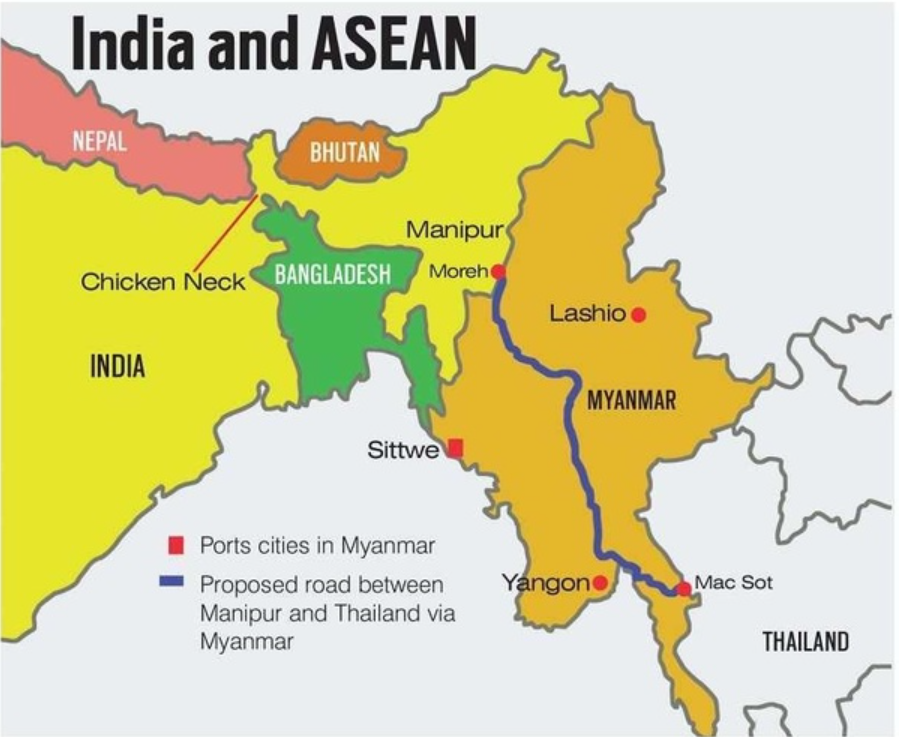India Halts Bangladesh Cargo Transshipment Amid Rising Geopolitical Tensions and Strategic Concerns
(Source – Indian Express, Section – Cover Page, Page – 01)
|
Context |
|
Analysis of the news:
Strategic Context and Diplomatic Tensions
-
The decision follows controversial remarks by Bangladesh’s Chief Adviser Muhammad Yunus during his visit to China, where he referred to Bangladesh as the “guardian of the ocean” for Northeast India and suggested integrating the region into China’s economic corridor.
-
His statements triggered diplomatic unease in New Delhi and were interpreted as asserting strategic leverage over India’s landlocked Northeast.
Domestic Industry’s Support for the Move
-
Indian exporters, particularly from the apparel sector, welcomed the decision.
-
The Apparel Export Promotion Council noted that Bangladeshi cargo had been raising transport costs and causing congestion, and its removal would rationalize freight rates and ease pressure on Indian infrastructure.
Security and Geopolitical Concerns
-
Strategic concerns over Chinese involvement in Bangladesh’s infrastructure, especially near India’s sensitive Siliguri Corridor or “Chicken Neck,” are seen as a key trigger.
-
Proposals such as revitalizing the Lalmonirhat airbase with Chinese help raised alarms about regional security and India’s strategic vulnerability.
Northeast India’s Strategic Vulnerability
-
Assam CM Himanta Biswa Sarma condemned Yunus’s remarks, highlighting the precarious nature of the “Chicken Neck” — a narrow 22-km corridor linking the Northeast to the rest of India.
-
He advocated for infrastructure development to reduce dependency on this vulnerable stretch.
|
About Siliguri Corridor |

The Siliguri Corridor is strategically important and highly sensitive territory, as it remains the only bridge between the eight north-eastern states of India and the rest of the country. |
Implications for WTO Commitments
-
Experts raised concerns that India’s move could face scrutiny under WTO norms, particularly GATT Article V and the Trade Facilitation Agreement, which require members to allow freedom of transit for goods to and from landlocked countries.
Conclusion:
-
While the move helps decongest Indian logistics and appease domestic exporters, it reflects deeper strategic recalibrations in response to shifting geopolitical alignments.
-
The challenge now lies in managing diplomatic fallout while adhering to international obligations under WTO frameworks.
|
Practice Question: India’s decision to revoke the transshipment facility for Bangladesh reflects the complex interplay between trade facilitation and strategic security concerns.” Discuss in the context of recent geopolitical developments in the Northeast region. (250 Words /15 marks) |
